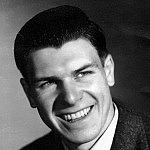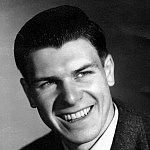
Quotes by Erroll Hulse
Puritanism is a wonderful antidote to the harmful and needless divisions which are caused by adding man-made rules to Scripture. Worldliness is an enemy. The cure is in the heart. A man can keep many rules, but be worldly still and at the same time possess a deadly spirit of Pharisaic self-righteousness. Puritanism concentrates on the great issue of the state of a person’s soul. When a soul is truly joined to Christ every part of the person – his thoughts, words and actions – will be subject to the Word of God. While he makes rules for his own life, he will avoid making them for others.
Postmodernism (the thinking of our age) is fiercely antinomian (without law). It is admitted that people make mistakes, but the word ‘sin’ is seldom mentioned and the idea that we all sin against God is avoided. Right and wrong are judged according to human feelings. The idea that God has an unchangeable holy moral law by which he will judge every person is unpopular.
Headship is not a ticket to privilege but a charge to responsibility. It is not tyranny, but leadership based on love.
Quoted in: BP News, By Jeff Robinson, Puritan beliefs about family life can prove helpful today, he says, Jul 29, 2002.
The remission of sin proceeds from the passive obedience of Christ, His offering up of Himself as the propitiation for our sins. Christ’s active obedience provides that righteousness which constitutes the believer righteous. It is human righteousness. The incarnation was essential. As man he lived out righteousness for us throughout his life on earth.
In times of special need and of the church’s weakness, there is a biblical and historical warrant to resort to extraordinary prayer for revival… We must recognize, however, that prayer is a spiritual gift, something that cannot be created artificially or regimented. We are not to think that we can organize prayer as if we are in control. The very ability to pray with unction and faith is given by the Holy Spirit, and although that activity largely precedes revival, prayer also is an integral part of revival.
It is said that the weekly prayer meeting is the spiritual barometer for any local church. You can tell with a fair degree of accuracy what the church is like by the demeanour or substance of the weekly prayer meeting. Is there genuine evangelistic concern? If so it will be expressed in the prayers. Is there a heartfelt longing for the conversion of unconverted family members If so that is sure to surface. Is there a world vision and a fervent desire for revival and the glory of our Redeemer among the nations of the world? Such a burden cannot be suppressed. Is there a heart agony about famine and war and the need for the gospel of peace among the suffering multitudes of mankind? The church prayer meeting will answer that question. Intercession in the prayer meeting will soon reveal a loving church that cares for those who are oppressed and weighed down with trials and burdens. Those bearing trials too painful or personal to be described in public will nevertheless find comfort in the prayer meeting, for there the Holy Spirit is especially at work
Prayer is an offering up of our desires to God for the things agreeable to His will, in the name of Christ, by the help of His Spirit, with confession of our sins and thankful acknowledgment of His mercies.
When the vision of Christ’s glory, demonstrated in the salvation of souls, becomes an intense desire in our hearts, that is especially the time when we must pray with fervor for the outpouring of the Holy Spirit in revival.
Revival is a reality about which we must give ourselves no rest, and the Lord no rest, until He comes and makes His church the praise of all the earth (Isa. 62:6-7).
The subject of spiritual experience is at the forefront of thinking in evangelicalism worldwide today. A clear line of division can be drawn between those who insist that the Bible must be the basis by which all spiritual experience is tested and those who regard experience as pre-eminent and resist the tests of Scripture. Is the Word our authority, or is spiritual experience our authority? The Puritans were strong in the area of knowing God by heart experience but they sought to test everything by Scripture. We do well to follow their example.
When the reality of sin and its radical effects on the whole man are bypassed the idea takes over that it simply takes a decision for Christ to bring about the new birth. A decision for Christ is all that is needed. This is “easy-believism,” in which repentance from sin is sidelined. Those who make a decision receive a pronouncement that they are saved. This proves premature. False converts are the outcome. The theory of the carnal Christian has been invented in order to accommodate those who have made a decision but who bear no marks of the new birth.
The Puritan ethic of marriage was to look not for a partner whom you do love passionately at this moment, but rather for one whom you can love steadily as your best friend for life, and then to proceed with God’s help to do just that. The Puritan ethic of nurture was to train up children in the way they should go, to care for their bodies and souls together, and to educate them for sober, godly, socially useful adult living. The Puritan way of home life was based on maintaining order, courtesy and family worship. Goodwill, patience, consistency and an encouraging attitude were seen as the essential domestic virtues.
Prayer is the genesis of revival. The beginning of a time of revival invariably has been marked by quickening of the ordinary prayer meetings, resulting in new vitality, more participation, more sense of the presence of the Holy Spirit, and more unction in intercession.
A ministry which is weak and flabby on the subject of sin is a useless ministry. A preaching ministry that does not result in conviction of sin is useless. If it does not wound, how can it heal? The good news is only for sinners.
It is a morbid and depressing fact that when it comes to adultery, there are too many casualties among pastors. Ministers are just as vulnerable as others. No area, no country, no denomination is immune. The damage done in each case is irreparable: the breakdown, as far as ministry is concerned, final. This is a distasteful subject, but we cannot shirk it. The matter demands faithful treatment. Let him who thinks that he stands take heed lest he fall.
In the Puritan tradition George Whitefield wonderfully exemplified in his preaching a stable understanding of divine sovereignty and human responsibility. He used to place lost sinners in a vice. He pressed home the necessity of repentance. But the lost sinner is a slave. He cannot repent. Yet to be saved he must repent. He cannot. He must. His only recourse is to look away from himself to the one who can save. His escape route is cut off. There is no help in himself. His only hope is to call on God for mercy. And a God of mercy will never cast out those who come to Him in faith.
In our generation we have increasingly suffered from spiritual lethargy and powerlessness. There is a high percentage of weak and lukewarm Christians in western churches who evidence little interest in growing in grace and knowledge. The church may be bustling with activity and at the same time be infiltrated and permeated with the world’s thinking and doing. It is sometimes the case that our bright forms of worship camouflage a dead spiritual condition.
We live in the climate of postmodernism. Western society encourages sin in an enormous extent and resists definition of, or clarity about, sin. Postmodernist philosophy is fiercely antinomian, that is, opposed to law. Right and wrong are judged on the basis of subjective human feelings. The result is a slide into an abyss of lawlessness. The consequences of lawlessness are seen in the alarming increase in family break-up, divorce, crime and overcrowded prisons.
We are not to think that we can organize prayer as if we are in control. The very ability to pray with unction and faith is given by the Holy Spirit, and although that activity largely precedes revival, prayer also is an integral part of revival.

